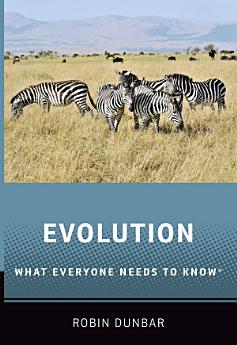Evolution: What Everyone Needs to Know®
এপ্ৰিল ২০২০ · Oxford University Press
৩.০star
১ টা পৰ্যালোচনাreport
ইবুক
160
পৃষ্ঠা
family_home
যোগ্য
info
reportমূল্যাংকন আৰু পৰ্যালোচনা সত্যাপন কৰা হোৱা নাই অধিক জানক
এই ইবুকখনৰ বিষয়ে
Evolution is one of the most important processes in life. It not only explains the detailed history of life on earth, but its scope also extends into many aspects of our own contemporary behavior-who we are and how we got to be here, our psychology, our cultures-and greatly impacts modern advancements in medicine and conservation biology. Perhaps its most important claim for science is its ability to provide an overarching framework that integrates the many life sciences into a single unified whole. Yet, evolution-evolutionary biology in particular-has been, and continues to be, regarded with suspicion by many. Understanding how and why evolution works, and what it can tell us, is perhaps the single most important contribution to the public perception of science. This book provides an overview of the basic theory and showcases how widely its consequences reverberate across the life sciences, the social sciences and even the humanities. In this book, Robin Dunbar uses examples drawn from plant life, animals and humans to illustrate these processes. Evolutionary science has important advantages. Most of science deals with the microscopic world that we cannot see and invariably have difficulty understanding, but evolution deals with the macro-world in which we live and move. That invariably makes it much easier for the lay audience to appreciate, understand and enjoy. Evolution: What Everyone Needs to Know® takes a broad approach to evolution, dealing both with the core theory itself and its impact on different aspects of the world we live in, from the iconic debates of the nineteenth century, to viruses and superbugs, to human evolution and behavior.
মূল্যাংকন আৰু পৰ্যালোচনাসমূহ
৩.০
১ টা পৰ্যালোচনা
লিখকৰ বিষয়ে
Robin Dunbar gained his MA from the University of Oxford and PhD from Bristol University. He is currently Professor of Evolutionary Psychology at the University of Oxford, and an emeritus Fellow of Magdalen College. He has held Research Fellowships and Professorial Chairs in Psychology, Biology and Anthropology at the University of Cambridge, Stockholm University, University College London, and the University of Liverpool. He is an elected Fellow of the British Academy, and was co-Director of the British Academy's Centenary Research Project. His principal research interests focus on the evolution of sociality in mammals (with particular reference to ungulates, primates and humans). He is best known for the social brain hypothesis, the gossip theory of language evolution and Dunbar's Number (the limit on the number of relationships that we can manage). His current project focuses on the mechanisms of social cohesion, and uses a range of approaches from comparative analysis to cognitive experiments to neuroimaging to explore the mechanisms that allow humans to create large scale communities.
এই ইবুকখনক মূল্যাংকন কৰক
আমাক আপোনাৰ মতামত জনাওক।
পঢ়াৰ নির্দেশাৱলী
স্মাৰ্টফ’ন আৰু টেবলেট
Android আৰু iPad/iPhoneৰ বাবে Google Play Books এপটো ইনষ্টল কৰক। ই স্বয়ংক্রিয়ভাৱে আপোনাৰ একাউণ্টৰ সৈতে ছিংক হয় আৰু আপুনি য'তে নাথাকক ত'তেই কোনো অডিঅ'বুক অনলাইন বা অফলাইনত শুনিবলৈ সুবিধা দিয়ে।
লেপটপ আৰু কম্পিউটাৰ
আপুনি কম্পিউটাৰৰ ৱেব ব্রাউজাৰ ব্যৱহাৰ কৰি Google Playত কিনা অডিঅ'বুকসমূহ শুনিব পাৰে।
ই-ৰীডাৰ আৰু অন্য ডিভাইচ
Kobo eReadersৰ দৰে ই-চিয়াঁহীৰ ডিভাইচসমূহত পঢ়িবলৈ, আপুনি এটা ফাইল ডাউনল’ড কৰি সেইটো আপোনাৰ ডিভাইচলৈ স্থানান্তৰণ কৰিব লাগিব। সমৰ্থিত ই-ৰিডাৰলৈ ফাইলটো কেনেকৈ স্থানান্তৰ কৰিব জানিবলৈ সহায় কেন্দ্ৰত থকা সবিশেষ নিৰ্দেশাৱলী চাওক।






